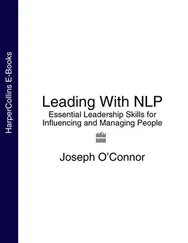John Gray - Children Are from Heaven - Positive Parenting Skills for Raising Cooperative, Confident, and Compassionate Children
Здесь есть возможность читать онлайн «John Gray - Children Are from Heaven - Positive Parenting Skills for Raising Cooperative, Confident, and Compassionate Children» весь текст электронной книги совершенно бесплатно (целиком полную версию без сокращений). В некоторых случаях можно слушать аудио, скачать через торрент в формате fb2 и присутствует краткое содержание. Год выпуска: 1999, ISBN: 1999, Издательство: HarperCollins e-books, Жанр: psy_childs, sci_pedagogy, Психология, на английском языке. Описание произведения, (предисловие) а так же отзывы посетителей доступны на портале библиотеки ЛибКат.
- Название:Children Are from Heaven: Positive Parenting Skills for Raising Cooperative, Confident, and Compassionate Children
- Автор:
- Издательство:HarperCollins e-books
- Жанр:
- Год:1999
- ISBN:978-0-06-133886-1
- Рейтинг книги:4 / 5. Голосов: 1
-
Избранное:Добавить в избранное
- Отзывы:
-
Ваша оценка:
- 80
- 1
- 2
- 3
- 4
- 5
Children Are from Heaven: Positive Parenting Skills for Raising Cooperative, Confident, and Compassionate Children: краткое содержание, описание и аннотация
Предлагаем к чтению аннотацию, описание, краткое содержание или предисловие (зависит от того, что написал сам автор книги «Children Are from Heaven: Positive Parenting Skills for Raising Cooperative, Confident, and Compassionate Children»). Если вы не нашли необходимую информацию о книге — напишите в комментариях, мы постараемся отыскать её.
Children Are from Heaven: Positive Parenting Skills for Raising Cooperative, Confident, and Compassionate Children — читать онлайн бесплатно полную книгу (весь текст) целиком
Ниже представлен текст книги, разбитый по страницам. Система сохранения места последней прочитанной страницы, позволяет с удобством читать онлайн бесплатно книгу «Children Are from Heaven: Positive Parenting Skills for Raising Cooperative, Confident, and Compassionate Children», без необходимости каждый раз заново искать на чём Вы остановились. Поставьте закладку, и сможете в любой момент перейти на страницу, на которой закончили чтение.
Интервал:
Закладка:
Your power of commanding increases if you don’t get emotionally upset. Remembering this will help you to stay calm. Subconsciously, we get upset because some part of us thinks it will make us more powerful and intimidating.
Animals puff themselves up in combat to intimidate. Because positive parenting is not fear based, intimidation is not helpful.
A clear and firm command repeated over and
over without the tone of emotional distress is
most effective.
Even some parent-effectiveness training programs have encouraged parents to share their feelings as a way to motivate children. Sharing feelings, even when done very peacefully, brings the parent and child to the same level, which slowly undermines the parent’s position as boss. Although the intent to validate feelings is good, it is better to assist children in expressing their feelings and not burden or manipulate children with our own.
When children are resistant to cooperating, it is not the time for parents to share or reveal their feelings. Instead, this is the time to listen to the child’s feelings. It is counterproductive for parents to share their anger, frustration, or disappointment. When children resist, it is time to identify and acknowledge what they might be feeling and what they want.
After giving a child an opportunity to be heard and a possible reward for cooperating, it is time for parents to use their power as boss and to command their child. Commanding is well received after the parent has first listened to their child’s resistance or objections.
IT’S OKAY TO MAKE MISTAKES
Certainly there will be times when a parent loses control and gets upset while making commands. As with all the skills of positive parenting, you don’t have to be perfect for the program to work. But it is important to try. When you make mistakes by forgetting to hold back your emotions or you just lose control, the solution is to apologize later. It is okay to make mistakes.
Children don’t need perfect parents, but they
do need parents who do their best and take
responsibility for their mistakes.
A little apology later on makes a big difference. It might sound like this, “I apologize for yelling at you. You did not deserve to be yelled at. Yelling is not a good way to communicate. I made a mistake.”
Another way to apologize is by saying, “I apologize for getting so upset with you. I needed your cooperation, but didn’t mean to get so upset with you. I was so upset because other things were bothering me as well. It wasn’t your fault that I got so upset.”
WHEN EMOTIONS ARE NOT HELPFUL
Whenever parents express negative emotions, children will feel that they have not measured up to a parent’s expectations or are in some way inadequate or not good enough.
They will feel they have failed in pleasing their parents. This feeling of failure or inadequacy will eventually numb children’s willingness to respond freely. When a parent apologizes later for yelling, the child doesn’t feel bad or unworthy.
It is difficult to nurture the good in our children when we do things to make them feel bad.
Sharing negative emotions is helpful when we want to feel better. It is inappropriate to use our children to listen to our feelings to make ourselves feel better. It is healthy to need our children to cooperate, but not healthy to use them as a therapist or best friend. Children are still learning to deal with their own feelings; they cannot handle hearing their parents’ feelings.
An adult needs to go to another adult and
not to a child to get support for feelings.
Whenever a parent expresses negative feelings, the children will eventually feel manipulated by feelings and stop listening. They will not only stop listening to their parents, but to their own feelings as well.
As with all other forms of manipulation, children tend to rebel later as teenagers to the extent they had to be obedient.
Cooperative children don’t need to rebel or disconnect from their parents to develop their independence. They can pull away to find themselves without giving up or rejecting the support of their parents.
YELLING DOESN’T WORK
Clearly, one of the worst forms of communication is yelling.
The act of yelling implies that we are not being heard, so we are turning up the volume. To yell at children or teenagers gives the message “You are not listening.” As a result, they just don’t listen. Eventually, when you yell, they just turn off and hear nothing.
To yell a command is even worse. This means that they don’t clearly hear what you want. Yelling disconnects children from their desire to be guided. Yelling is the weakest form of commanding, because it lessens your position as commander.
Only when children clearly hear one simple message over and over do they give up their resistance to being led by the leader.
When you yell, you have stopped commanding and started demanding. It contains an implied threat: “You had better listen or else!” This kind of threat means you are demanding their obedience. Although making demands backed up with punishment has worked for centuries, its power cannot hold up in a free society. If you want your children to find the freedom in their lives to make their dreams come true, give them the freedom to cooperate.
Don’t demand it, command it.
MAKE YOUR COMMANDS POSITIVE
Although it is always best to command in clear and positive terms, often when you are ready to command the first thing that comes out of your mouth is a negative. If this happens, make sure to follow your negative demands or commands with a positive command. These are some examples of negative demands, negative commands, and then a corresponding positive command. Although negative commands are much better than negative orders, the positive commands are the best. Let’s explore a few examples:
Negative Demand: Don’t hit your sister.
Negative Command: I want you to stop hitting your sister.
Positive Command: I want you to be nice to your sister.
Negative Demand: Stop talking.
Negative Command: I want you to stop talking.
Positive Command: I want you to be quiet now.
Negative Demand: Stop fooling around and clean up your room.
Negative Command: I want you to stop fooling around and clean up your room.
Positive Command: I want you to clean up your room right now.
Negative Demand: Don’t talk that way.
Negative Command: I don’t want you talking that way.
Positive Command: I want you to be respectful and say nice things.
Negative Demand: Put your jacket on now.
Negative Command: I want you to stop fighting me.
Positive Command: I want you to cooperate with me and put your jacket on.
Negative Demand: You better listen to me or else.
Negative Command: I want you to stop playing cards and go brush your teeth.
Positive Command: Right now I want you to go brush your teeth.
If you begin with a demand or a negative command from habit, then just follow your negative message with a positive message. For example you might say, “I don’t want you to hit your brother. I want you to be nice instead.” Once you have found your positive statement, don’t deviate. If your child continues to resist, just repeat the positive statement. Let’s look at some examples:
Читать дальшеИнтервал:
Закладка:
Похожие книги на «Children Are from Heaven: Positive Parenting Skills for Raising Cooperative, Confident, and Compassionate Children»
Представляем Вашему вниманию похожие книги на «Children Are from Heaven: Positive Parenting Skills for Raising Cooperative, Confident, and Compassionate Children» списком для выбора. Мы отобрали схожую по названию и смыслу литературу в надежде предоставить читателям больше вариантов отыскать новые, интересные, ещё непрочитанные произведения.
Обсуждение, отзывы о книге «Children Are from Heaven: Positive Parenting Skills for Raising Cooperative, Confident, and Compassionate Children» и просто собственные мнения читателей. Оставьте ваши комментарии, напишите, что Вы думаете о произведении, его смысле или главных героях. Укажите что конкретно понравилось, а что нет, и почему Вы так считаете.












